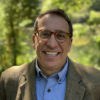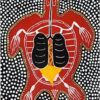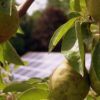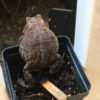Thursday, March 5, 2020 | 9th Adar 5780 Dear All, The coronavirus is spreading, and it will get worse before it gets better. Batten down the hatches, wash your hands, follow public safety advice, be considerate to others – and don’t freak out. And the aftermath of the Israeli elections and the ongoing US elections – same advice… But as the velocity of travel, literally, starts to slow, I want to argue that we – you, me, all of us – do a cleanse in the next few weeks. And I get this idea from thinking carefully about the deep lessons from the Jewish calendar right now: First: Purim isn’t an isolated holiday. It comes to help us get ready for Pesach, existentially as well as physically. Purim is “the world turned upside down.” No mention of G!d in the story. Getting drunk. Cross-dressing. Purim comes to shake us out of false certainties. It comes to question the components of our identity, the relationship between inner and outer, the tension between who we are and what we have. And Purim does this because it kicks off an eleven week period from Purim to Shavuot. Seder night is the fulcrum of the whole period. And seder night is the […]















